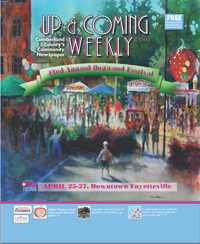 It’s been nearly three years since the North Carolina General Assembly liberalized state gun laws. “There is a culture in the South that believes in individual liberties and freedom from government interference,” retired N.C. Sen. Eleanor Kinnaird said. “Guns symbolize that freedom,” she added.
It’s been nearly three years since the North Carolina General Assembly liberalized state gun laws. “There is a culture in the South that believes in individual liberties and freedom from government interference,” retired N.C. Sen. Eleanor Kinnaird said. “Guns symbolize that freedom,” she added.
In October 2013, a new law went into effect in North Carolina that made it legal for people with concealed carry permits to take their weapons into bars and restaurants. The law was met with praise from gun-owners, and much negativity from people who feared the law would create disasters. The revised concealed carry statute says anyone armed who frequents an establishment that serves alcohol is not allowed to have a drink.
Under the law, businesses are allowed to post signs that prohibit any firearms inside their establishments. Some have chosen to do so, but others have not. In Fayetteville, one sports bar proprietor posted such a sign but was told by the police to take it down. The owner asked to remain anonymous. City Attorney Karen McDonald said Fayetteville Police Attorneys could not comment. “Our officers are aware of the new gun laws and enforce them on a complaint basis,” said police spokesman Lt. Todd Joyce.
Other North Carolina laws restrict a citizen’s right to carry guns openly, such as the ban on weapons on school grounds and the ban on possession in any assembly where a fee has been charged for admission. Side arms cannot be worn in any establishment where alcoholic beverages are sold and consumed. This is where the law seems ambiguous. People with concealed carry permits may take handguns into a bar, but those who openly display pistols cannot; at least they’re not supposed to.
An Up & Coming Weekly reporter recently saw an older man with his wife leave a popular restaurant with a pistol strapped to his hip. That was a violation, but apparently no one complained.
“Some may see friction between private property rights and the Second Amendment,” said State Rep. John Szoka, R-Cumberland. “Another viewpoint is that ‘safe zones’ are a license for crazy people to attack because they know that law-abiding citizens will not break the law and carry weapons into those zones,” he added.
Szoka recalled the 1993 mass shooting at Luigi’s Italian Restaurant. A drunk soldier killed four people and wounded eight before he was shot by police. “If someone with a valid carry and conceal license had been carrying in the restaurant, maybe the death toll could have been less,” he said.
Local governments have some authority to limit open carry rights. An example of a regulation that is within the power of local government is a decision by Cumberland County Commissioners to ban guns in the courthouse and libraries and on the grounds or parking areas of those buildings. Several years ago Fayetteville police arrested a man carrying a loaded rifle on the county courthouse grounds. He was charged with going around armed to the terror of the public. It’s a little-known common law that gives authorities the right to arrest someone they believe has nefarious intent.

 How to resolve AdBlock issue?
How to resolve AdBlock issue? 









